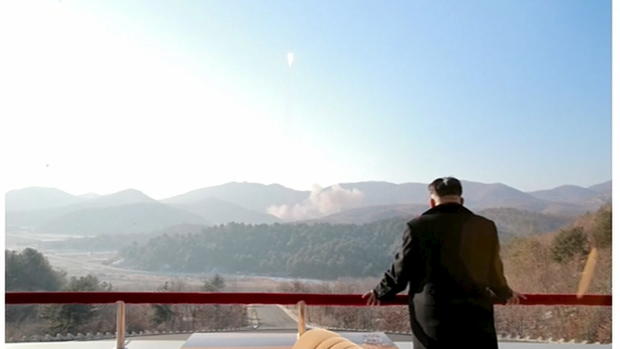N. Korea starts to feel neighbors' wrath over rocket launch
SEOUL, South Korea -- South Korea said Wednesday that it would suspend operations at a joint industrial park with North Korea in response to the North's recent rocket launch, the first time in the park's decade of operation that Seoul has halted work there.
The move comes after North Korea on Sunday launched a long-range rocket considered by other countries to be a banned missile technology test.
South Korean Unification Minister Hong Yong-pyo said at a news conference that the suspension of operations at the industrial complex in the North Korean border city of Kaesong would stop the North from using hard currency earned there to develop nuclear and missile technology.
The park, which started operations in 2005, has provided 616 billion won ($560 million) of cash to North Korea, Hong said.
South Korea's government will provide financial compensation to companies that operate at Kaesong, Hong said. It will begin pulling South Koreans from the park on Thursday.
There was no immediate reaction to the move from North Korea.
- U.S. intel chief warns of nuclear threat
- N. Korea lauds new rocket launch
- How worrisome is a N. Korean rocket launch, really?
The park is the last major cooperation project between the rival countries. Combining South Korean initiative, capital and technology with the North's cheap labor, it has been seen as a test case for reunification. Last year, 124 South Korean companies hired 54,000 North Korean workers to produce socks, wristwatches and other goods.
South Korea's government and companies invested more than 1 trillion won ($852 million) to pave roads and erect buildings in the zone, which lies in a guarded, gated complex on the outskirts of Kaesong, North Korea's third-largest city.
South Korean companies in Kaesong survived during past periods of tensions that led to the suspension of other inter-Korean projects. A major interruption to the park's operation happened in 2013, when North Korea pulled out its workers in protest of South Korea's joint military drills with the United States.
Japan, meanwhile, announced Wednesday that it would impose new sanctions on North Korea to protest the rocket launch. Chief Cabinet Secretary Yoshihide Suga said the sanctions would be approved by the Cabinet later, and would also require legislative changes in parliament.
Suga did not elaborate on the specific sanctions Japan was looking to impose, or what sector of North Korea's economy they would target.
The U.S. government is still deliberating it's response to North Korea's recent actions, but is pushing allies in the region hard to send a strong, unified message with harsh sanctions imposed by the United Nations Security Council.
Any U.N. sanctions would on top of the unilateral measures taken by individual nations.
For their part, U.S. senators are expected to vote on Wednesday on a sanctions package that targets North Korea's ability to access the money it needs for developing miniaturized nuclear warheads and the long-range missiles to deliver them, according to the legislation's backers.
The House overwhelmingly approved a similar measure last month and there is strong bipartisan support in the Senate for the North Korea Sanctions and Policy Enhancement Act.
"The kind of belligerence we've seen from Pyongyang must not be ignored," Senate Majority Leader Mitch McConnell, a Kentucky Republican, said Tuesday.
